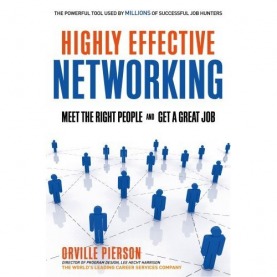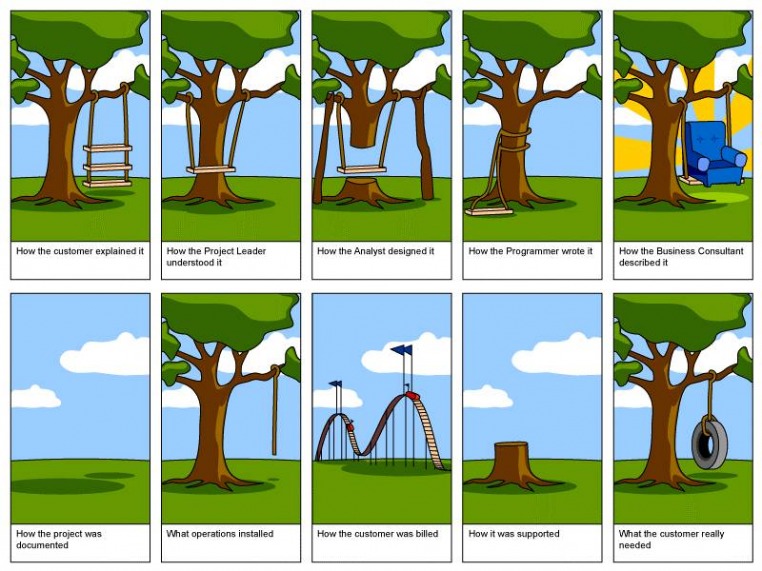
Most everyone agrees, you need to network to find work these days. With unemployment as high as it is, networking gives job seekers the best chance in landing jobs, with some saying as high as 70% of jobs found are through connections made. A short time ago companies aggressively searched for talent. It took nothing more than posting your resume on Monster.com, and within days or weeks you would be at an interview. Those days are long gone and now it can take months to get the chance to sit across the table with a potential employer . There is no way around it, it's up to the individual to seek the companies out, to get noticed, to find the connections that will open doors to companies that lead to jobs. In todays world, its not what you know, its not who you know, but who knows you.
Unfortunately, networking doesn't come easy to many people. Oh, there are some crazies out there who thoroughly enjoy it , but I would argue a lot are uncomfortable doing it. If you're like me , you view going to networking events with no greater enthusiasm than an appointment with the dentist. Fortunately, I've learned, networking is a skill, and like most things, the more you practice the better you get at it. As a life long introvert, I knew I needed to read up on the subject so last year I picked up and read the book "Highly Effective Networking" to help jump start my networking activities. I am convinced introverts can be extroverts when necessary and this very informative, motivating, and inspirational book is a great resource to learn how. I highly recommend it to all, whether you are a seasoned networker or just beginning.
Below are some highlights from the book that stuck with me as I searched for work this past year.
- You can’t control hiring. You can control networking.
- Stay with it, it’s a numbers game.
- People do learn how to network.
- Networking is about becoming a candidate for jobs that are not yet announce.
- Its important to let decision makers know you exist, and that you are qualified, available, and definitely interested in person or on the phone.
- Make a project plan for your job search.
- Networking is not about selling, its about information exchange between people who share a common interest.
- Real networking is an authentic conversation, common interests and information exchange.
- Networking is people connecting with people, linking ideas and resources.
- Job hunters are more likely to get connected to their next job through someone they know less well rather than through their best friends.
- You don’t need to have a strong relationship with someone to network.
- Job searching is like any project at work; plan it, organize the work, implement, measure progress, adjust plans as needed.
- Project plan includes: Objective- what kind of work you want to do, Target Market – where you want to work, Core Message – what you will say about yourself.
- Be clear about what you are hunting for – the more clear the easier it is to find.
- A personal objective defines what kind of work you want to do.
- Target Market is defined by location, industry and size.
- The more precise you define the organization the better.
- Your target list is just as important as you resume.
- For most job hunter a list of 40 organizations is a good starting point.
- You’re interested in reaching organizations not job openings.
- 10 to 50 job openings per month must come up from your Target Market.
- Your core message describes your qualifications in the language of your target market.
- Your project plan prepares you for a proactive job search.
- You are looking for information on organizations, not job openings.
- The project plan – professional objective, target market, and core message is exactly the word you want to get out when networking.
- The more you know about an industry the better off you’ll be when networking.
- Most job hunters are hired by Decision Makers whom they’ve met before the position is open.
- Project Plan: deciding what you want to do, where you want to do it, and how you’re going to present yourself.
- Talk with as many people as possible about your job search.
- Networking goals: get the word out, gather information, talk to insiders, get intouch with Decision makers.
- You want others to talk about you positively.
- Enthusiasm towards your work and a positive attitude is very important.
- Reassure people you are not asking for big impossible favors.
- Simplest way to make your personal contacts comfortable is to tell the truth, explain your plan.
- Tell people you’d be grateful for introductions only if they are comfortable.
- Information about a target is extremely important.
- Getting your message out is like planting seeds for the future.
- The more people who know what kind of work you seek, what kind of organizations you are interested in and was skills you have the better chance you have.
- Try to set up meetings for introductions.
- Networking works best with phone calls – real time.
- Start networking with strongest relationships then move to the colder ones.
- Gather your courage and work the cool zone.
- Don’t let resume distribution substitute your networking.
- Effective networking is about deciding to do it well, preparing to network, talking to the right people the right way, getting through to the Decision maker, and land a job.
- Most job hunters use a combination of personal and professional contacts.
- Look for contacts who are both personal and professional contact.
- Offer information as well as asking for it.
- Be judicious about asking for referrals.
- Your primary focus of your questions is organizational needs – link your experience to those needs and goals.
- Let them know how you can help them. Don’t hesitate to let them know how much you want to work there.
- Networking goals; collecting information, getting your message out, an meeting people.
- Prepare carefully when meeting with a decision maker.
- In your professional networking, you need to be a well informed professional, not merely a job hunter.
- Share information on industries, organizations, people in those organizations, best practice in your profession.
- Networking is about information exchange, so be prepared to exchange information you have gathered.
- Gather information on organizations, people on google, websites, articles,
- Industry news is what managers want.
- You can be informed on people if you know how to use the internet.
- With professional contacts it may be better to offer information before you receive it.
- With professional contact focus more on shared interest – industry, trends people, professional information.
- With professional contacts ask for introductions.
- Connecting with decision makers is easier when you’ve researched them.
- Check the internet for background information about them.
- Add decision maker names and title in target list.
- Find as much information on decision makers as possible.
- Give profession contacts your resume after you have met with them.
- Try to get introduced before they pass your resume out.
- Get back to people you’ve already talked to.
- Keep contacts informed and part of your job search.
- As you loop back to contacts, some of them will become part of your job searching team.
- Keep professional contacts in the loop too, but businesslike and brief.
- Real time conversations is the best way to get information quickly.
- Keep record of every contact and record of every networking partner.
- Be systematic about keeping records on: your contacts, your conversation, target organizations.
- Keep records on the conversations.
- Keep a file on each targeted organization – spreadsheets
- Your three most important internet activities: Evaluate your internet presence, use social networking, do internet search.
- Find common interest with professional contacts.
- Combine networking with the other six search techniques – walk in , direct mail, cold call, applications, ads, postings, and recruiters.
- 50 to 70 percent of job searchers get jobs through networking.
- Follow up, follow up, follow up with decision makers.
- Networking is not part of your job search, IT IS YOUR JOB SEARCH.








 RSS Feed
RSS Feed
